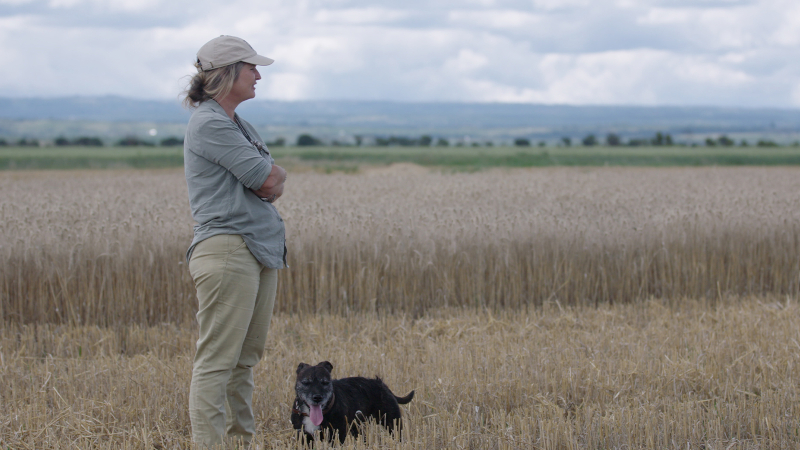Directors – Daphne Matziaraki, Peter Murimi – 2024 – US, Kenya, Greece – Cert. 12a – 94m
**
Disagreements in Kenya between indigenous, pastoralist herdsmen and white immigrant farmers come to a head during a severe drought exacerbated by climate change – out in UK cinemas on Friday, October 4th
Shot mostly between 2017 and 2019 – so before the COVID pandemic – this is a brave attempt to relate two opposing and seemingly irreconcilable sides to a specific conflict.
Laikipia is a large, wildlife conservation area of Kenya, and the film was made some 60 or so years after Kenyan independence.
On the one hand, indigenous Kenyan tribesmen have been grazing their herds of goats and cattle on the land, simply wandering around and letting the animals graze at any suitable pasture they find. There is no concept of land ownership, except the unspoken idea that this is their country and this is therefore their land, which seems reasonable enough.
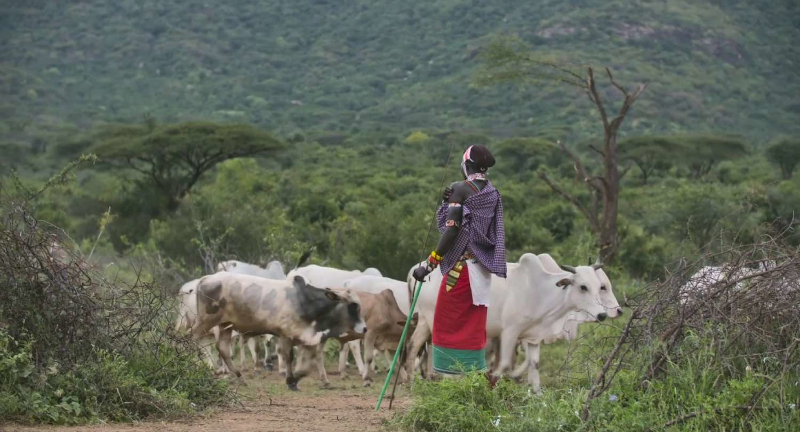
On the other hand, the early part of the twentieth century saw white British settlers awarded large areas of land to set up farms on the more profitable, Western capitalist business model. These people have now lived in the country and run their farms as enclosed ranches for some four generations. They consider themselves Kenyan.
The documentary could go through this and explore both sides in more detail, presenting both views (since they seem to be mutually exclusive – one of them is going to have to give, and might take the other down with it) for the viewer to understand and make up their own mind about. Yet it seems content to follow herdsman around and show what happens to them, and follow white Kenyan families around and show what happens to them. That goes some way to explaining the conflict, but nowhere near enough.
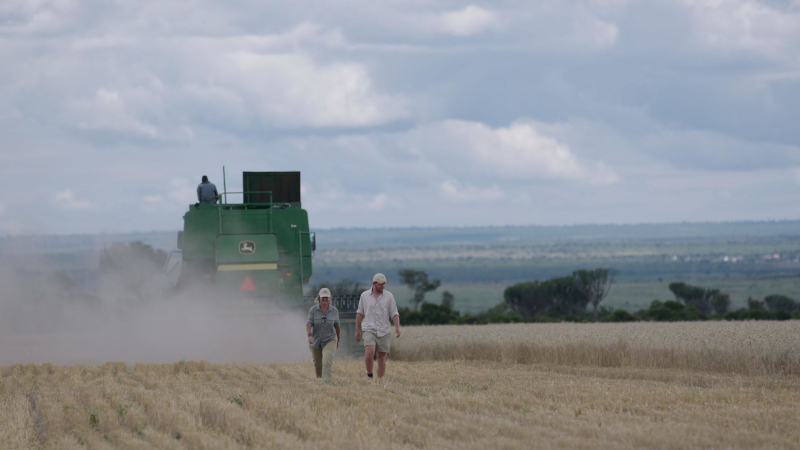
It’s good that the film refuses to come down on either one side or the other and be prescriptive towards one faction or the other, forcing the audience to come to their own conclusions. It’s less successful at portraying the indigenous people, as you don’t get a particularly strong feeling for any one person, than it is at showing the fourth generation, white Kenyans.
It manages to find, among them, farmer Maria Dodds and her grown son attempting to run their 80 000 acre farm Kifuku Ranch on modern, Western, commercial business lines as they try to prevent the indigenous pastoralists’ livestock from depleting the grass on their enclosed land. The white ranchers need this grassland for their own cattle. You can tell the white farmers are struggling financially, while the less business-oriented tribesman lack those stresses and concerns, focused as they are more on their own and their herds’ day-to-day battle for physical survival.
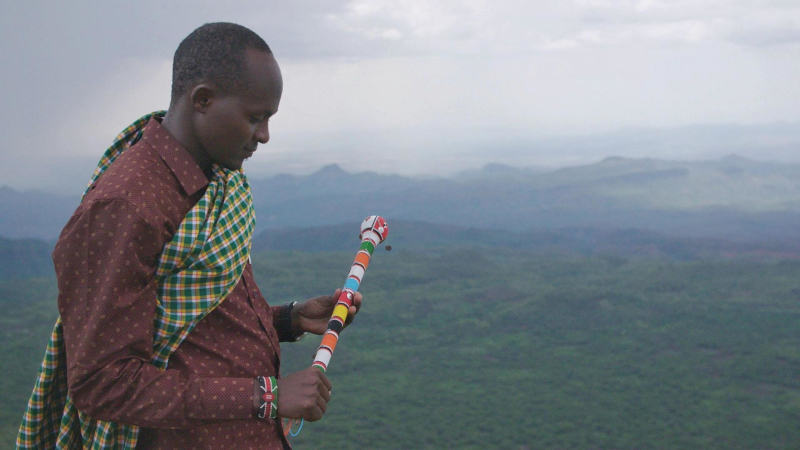
All of this is exacerbated by two factors. One, at the time of filming, climate change is causing an unprecedented, 18-month drought which is depleting the available amount of suitable grassland, pushing the pastoralists into illegally grazing on the whites’ land and the whites into trying to stop them doing so. Two, an upcoming election produces a candidate named Lempurkel who takes the pastoralists’ side without any attempt to understand the opposing view.
The white Kenyans’ position is seemingly supported by the incumbent administration (although, again, the film fails to explore or detail this). Lempurkel is ultimately arrested for hate speech and incitement of violence. To be fair, from the evidence here presented, it’s pretty difficult to find any common ground between the two diametrically opposed factions of farmers and tribesmen.
Some more explanations of the views on both sides, using historical and geographical material and perhaps archive footage or photographs, would have helped greatly. Or perhaps, more fly-on-the-wall footage following people around, would have helped too.
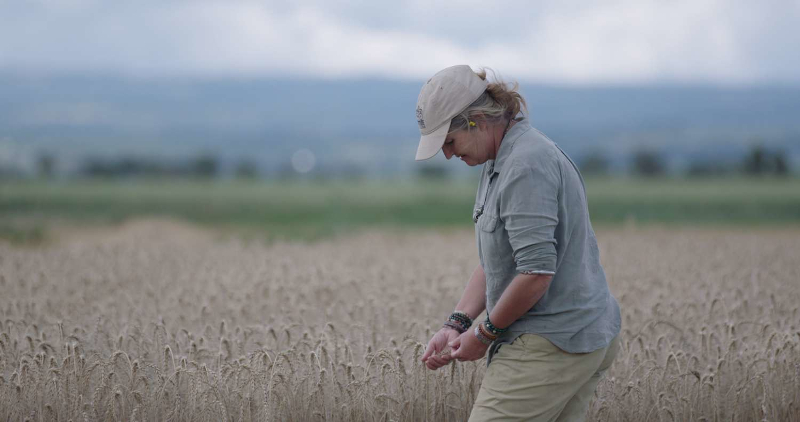
There’s little of the perilous intensity of Ugandan, political documentary Bobi Wine: The People’s President (Moses Bwayo, Christopher Sharp, 2022) where an indigenous cameraman bravely put himself in terrifying conflict situations to capture them on camera at great personal risk to himself. The directors here (quite understandably) lack that sort of life-threatening commitment, opting instead to film scenes of slaughtered cattle after the event or use footage of situations shot on mobile phones by white Kenyans, or film the latter themselves talking about such events afterwards.
The film nevertheless functions as a crucible for wider global issues. Is the Western, farming business model more desirable than a more indigenous, back-to-the-land, small scale approach? Should the historically-based land ownership rights of specific parties be re-evaluated in terms of land grab and injustice? How can awareness be raised on the ever-increasing impact of climate change on such issues?
What the two co-directors do achieve in spades here, however, is to present two parallel pictures of irreconcilable lifestyles, resulting in seemingly irresolvable conflict. This may be due in part to the diversity between them, with Daphne Matziaraki being Greek, and possessing a European sensibility, while Peter Murimi is a native Kenyan, and possessing an African perspective. However, you can’t help feeling they could have taken a lot more risks during filming (easy for a film journalist to say when I don’t have to put myself in harm’s way, I realise), and explained both viewpoints and their underlying backgrounds and causes with considerably more historical and geographical information and clarity.
The Battle for Laikipia is out in cinemas in the UK on Friday, October 4th.
Trailer:
